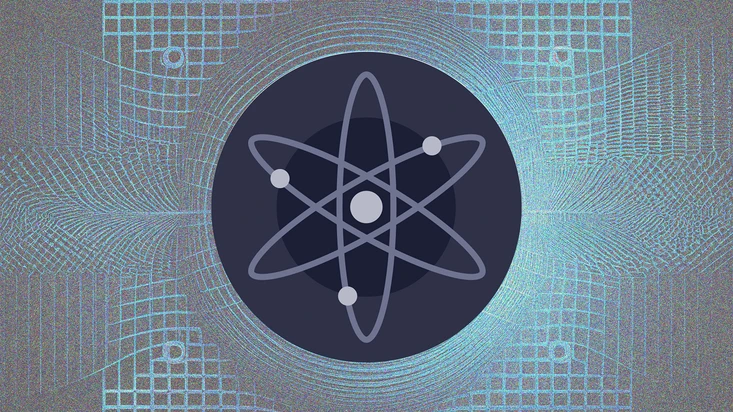
About Cosmos Hub?
The Cosmos Hub forms the heart of the Cosmos ecosystem, a universe of independent, parallel blockchains. Cosmos Hub serves as an integral bridge between different blockchains in the Cosmos Network.
These blockchains are built using the Cosmos Software Development Kit (SDK), a framework that empowers developers to create their own unique blockchains with a range of customizable modules.
The Cosmos Hub acts as the gateway to an expanding ecosystem of interconnected blockchains, made possible by the Inter-Blockchain Communication (IBC) protocol. IBC allows these blockchains, known as "zones". Each zone can function autonomously, from authenticating accounts and transactions to creating and distributing new tokens and executing blockchain changes. By connecting to the Cosmos Hub, each zone can effectively communicate with other zones within the network.
Rather than individual blockchains establishing connections with every other chain, each blockchain simply connects to the Cosmos Hub, which then manages and tracks the various zones. Whenever a zone requires resources from another, the hub facilitates the transfer, ensuring a smooth flow of data and assets.
The Cosmos Network is already home to over 246 interchain apps and services, including notable projects such as Binance Chain, Terra, Crypto.org, and, of course, the Cosmos Hub itself. These interconnected blockchains manage a staggering $48 billion in digital assets.
The Cosmos Hub, fueled by its native cryptocurrency ATOM, serves as the cornerstone of the Cosmos Network. ATOM plays a crucial role in various aspects of the network's functionality including network consensus, staking rewards, paying gas fees and governance.
Cosmos Price
The current ATOM price is $9,30 USD with a market cap of $3 222 080 427 USD. ATOM has a circulating supply of 346 608 690 ATOM coins.
ATOM can be purchased on a variety of centralized and decentralized exchanges including Binance, OKX, Bybit, Uniswap, Pancakeswap and many more.
How Does Cosmos Work
At the heart of Cosmos lies a system designed to facilitate communication, interoperability, and scalability among multiple blockchains. This system is built around three core components: the Cosmos SDK, the Tendermint consensus algorithm, and the Inter-Blockchain Communication (IBC) protocol which are pioneered by the Cosmos Hub.
The Cosmos Software Development Kit (SDK) is a framework that simplifies the process of building blockchain applications. It provides developers with a set of tools and modules to create custom blockchains, known as zones, without having to code everything from scratch. These zones can be tailored to specific use cases and can operate independently, each with its own set of rules and governance models. The SDK also provides common blockchain functionalities like staking, governance, and token management, allowing developers to focus on the unique aspects of their blockchain.
Tendermint Consensus. Each zone in the Cosmos network uses the Tendermint consensus algorithm to validate transactions and secure the network. Tendermint is a Byzantine Fault Tolerant (BFT) consensus mechanism that allows a network to continue operating even if some nodes fail or act maliciously. It uses a Proof-of-Stake (PoS) system where validators, the nodes responsible for validating transactions and creating new blocks, are chosen based on the number of ATOM tokens they hold or have delegated to them. This consensus mechanism ensures that all nodes agree on the state of the blockchain, providing security and consistency across the network.
The IBC protocol is what enables different blockchains in the Cosmos network to communicate and interact with each other. It allows tokens and other data to be transferred from one blockchain to another, breaking down the barriers that traditionally isolated blockchains. This protocol is what makes Cosmos a network of interconnected blockchains, or the "Internet of Blockchains".
Cosmos hubs are special blockchains that connect multiple zones. The Cosmos Hub is the first and most significant hub in the network, keeping track of the state of all connected zones. However, other hubs can be created, and zones can connect to multiple hubs, creating a network of interconnected blockchains.
Furthermore, Cosmos also provides bridges to connect with blockchains that don't use the Cosmos SDK or Tendermint, such as Bitcoin and Ethereum. These bridges enable interoperability with a wide range of blockchains, further expanding the reach of the Cosmos network.
What is Cosmos Used For?
Cosmos is used to enable the creation of independent, scalable, and interoperable blockchains. It provides a platform for the development of decentralized applications and facilitates the seamless transfer of data and assets across different blockchains.
Management
Jae Kwon is one of the co-founders of Cosmos and the creator of Tendermint, the Byzantine Fault Tolerant (BFT) consensus algorithm that powers the Cosmos network. Kwon was the first person to apply BFT research in a "Proof of Stake" (PoS) public blockchain context, which led to the creation of Tendermint.
Another Cosmos’ co-founder is Ethan Buchman. Ethan teamed with Jae Kwon in 2015 to develop Tendermint after meeting at the Cryptocurrency Research Group and Crypto-economics Conference.
The Cosmos team performed 3 separate early funding rounds in 2017, and were able to raise a total of $17 million USD.
The Cosmos project is also supported by the Interchain Foundation (ICF), a Swiss non-profit foundation that was formed to support the development of Cosmos and the ecosystem that will contribute to the Cosmos network.
In addition to the founding team and the ICF, the Cosmos project is also supported by Tendermint, a software development company contracted by the ICF to develop the Cosmos Network. Tendermint team played a key role in constructing essential network infrastructure, including the Cosmos Hub, Cosmos SDK, and Tendermint Core itself.












